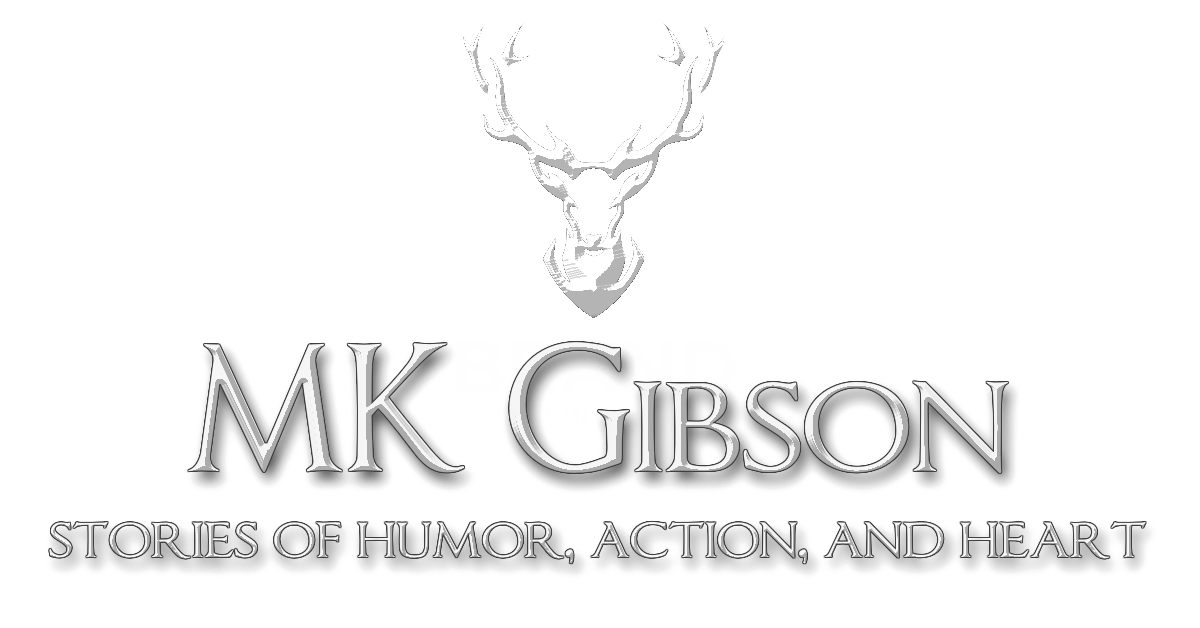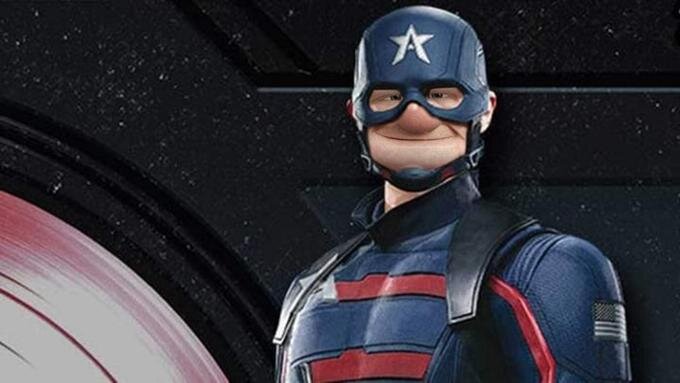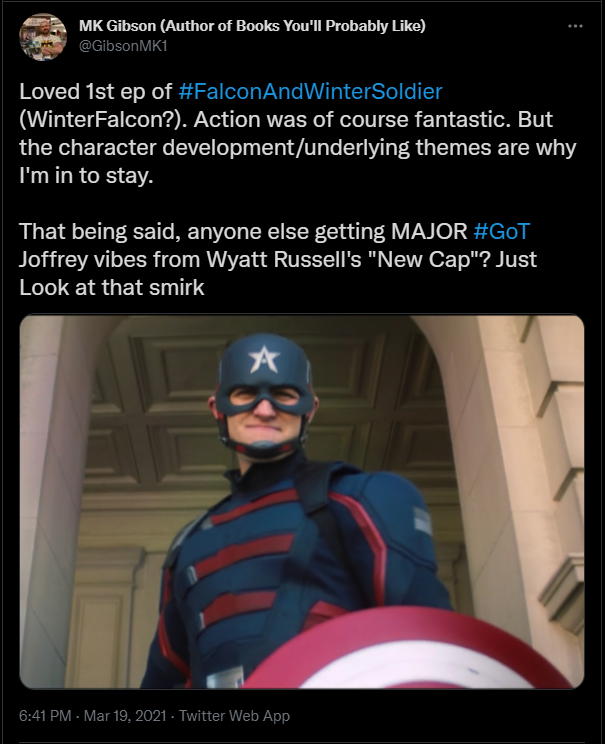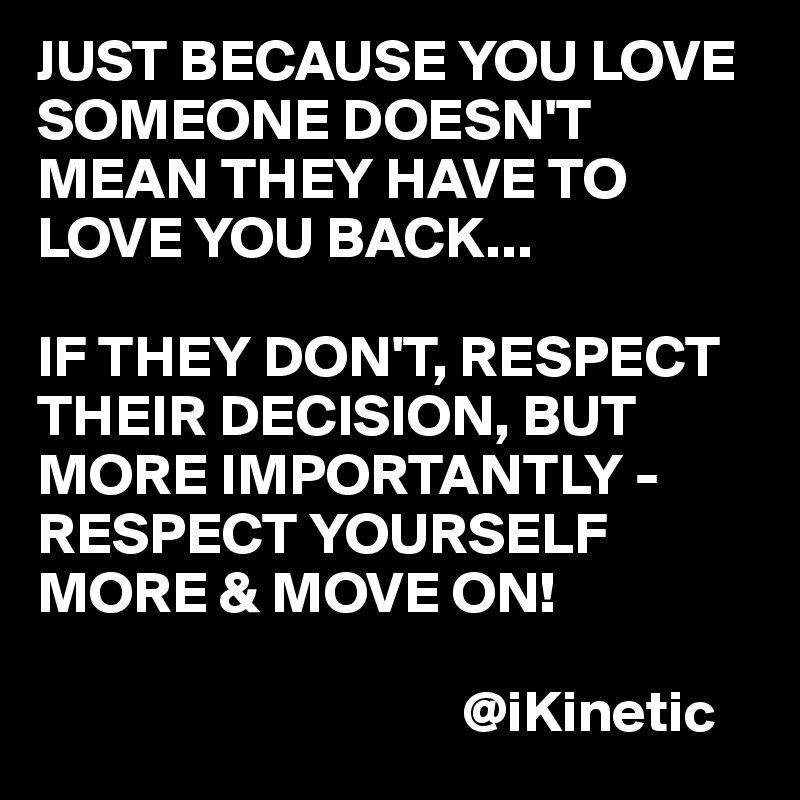Defending Characters We’re Told to Hate -Or- Were Gaston and John Walker Really That Bad?
Anyone who knows me and/or my books knows that I do love me some villains and antagonists. They are, after all, the most important part of traditional storytelling. Sure, heroes are who people cheer for. But for the bulk of storytelling, it’s the villains who set the stage, move the plot, and create the tension. The right villain makes the heroic victory, or heroic sacrifice, all the sweeter. And without the villains, all those purported “heroes” would just be standing around the farm, living in the Shire, swimming under the sea, or looking for power converters at Tosche Station with metaphorical thumbs in their butts.
Trust me, all the destiny in the universe can’t cure thumb-butt.
However, I will not stand by and allow the good name of villain be besmirched by pretenders to the title. I refuse to blindly boo and gnash my teeth at someone who is presented as “Here’s your villain! Hate them!”
So, with my tongue firmly in my cheek, I will attempt to exonerate two such “bad guys.” John Walker, the New Captain America/US Agent from Falcon and the Winter Soldier, and Gaston from Beauty and the Beast.
First up, John Walker
Image from Disney/MCU
So, remember at the end of Falcon And The Winter Soldier ep 1 when John Walker was introduced? When Sam, and we the viewers, saw that knock-off standing there and smugly smiling at the camera, holding Steve Rodgers’ shield? Remember? Yeah you do. And you know for damn sure the internet remembers.
Even I wasn’t immune to that punchable face, just smirking at me. I couldn’t wait to hate that guy. But then from ep 2 onward, I felt … regret for my initial reaction. Remorse.
The show, and the internet, went to great lengths to paint MCU John Walker as a villainous tool. But was he? The Wrap referred to John Walker as the “Toxic Masculinity Captain America” and an “Incel.” According to Epic Stream, the actor Wyatt Russell purportedly got death threats for his character, and was referred to as “{…} one of the most despised villains in the franchise.”
Despised? Really? Why? What did he do besides having the audacity of NOT being Steve Rodgers? Did he deserve the acrimony? Let’s see. He
Was given the shield that we the audience believed should (and knew eventually would) end up in Sam Wilson’s hands.
He admitted to his wife/best friend that he wasn’t sure he was good enough.
Expressed humility on Good Morning America by flat-out saying that while he was not Steve, he would do his best.
Showed up to help Sam/Bucky on the trucks and then admitted that he wasn’t who Sam thought should have the shield.
Asked for Sam/Bucky’s help multiple times. (FYI: referring to someone in the military as a wingman, especially in Air Force culture, is NOT an insult. It is the person you literally trust to have your 6 when things go Tango Uniform. Something Sam, an Air Force vet and later contractor, should have known. And frankly, the writers should have known that as well.)
Bailed them out of trouble in Baltimore.
Refused to be called a hero for his Medals of Honor because of the cost to human life it took to get them, referring to it as “the worst day of my life.”
Got his ass beat by the Dora Milaje for plot reasons and laughed at by Sam/Bucky.
And frankly, just did his best despite clearly having CTE (note how he was always touching his head as if in pain, or shaking his head to “clear the cobwebs.”) This man’s government trained him and said “Go forth.” He did, and was punished for it. They turned their back on him. Did he go evil? No. When he came for revenge against Karly, he instead dropped his shield and saved the busload of people. The people that Karly, our propped-up-by-plot pandering rebellion leader, was actively trying to kill. You know … like a sociopathic murderer.
Yeah yeah yeah, I know: He *finger quotes* killed a guy by bashing him to death with the shield. C’mon, who hasn’t? We’ve all played some kind of RPG. Besides, Walker was fighting a wanted criminal who was, despite said criminal’s speech in that episode to make him empathetic, part of a group that was trying to kill him in addition to being culpable in the multiple murders committed by Flag Shamshers leader, Karli Morgenthau. And after the shield bash, in the next ep, Walker was emotionally wrecked. Just like sad-sack Bucky had been the entire season. Just like every rational, redeemable person would be.
But ya know who’s never showed an ounce of remorse for the people he’s whacked? MCU’s Sam Wilson. That dude killed several dudes in the first episode alone by kicking them out of helicopters, blowing up the helicopters, or dropping them to their deaths over those canyons. And he did it with quips and without an ounce of remorse. But he’s the “hero,” right? So he gets a pass, I guess.
Sorry internet, you lose. Walker was never a villain. He was just a guy you were told to hate and you did. Because that’s what sheep do. They follow the commands of any barking dog. :)
Image from Disney
Now, onto a tougher challenge--defending good ol’ Gaston from Beauty and the Beast. Woof. Okay, let’s give this a shot. Ahem. *affects a comically bad southern drawl*
Your honor, I’m not a big city lawyer. I’m just a country boy from a small county, which one we might call a province. And our “provincial life” is a little slower, sure. But we have good people, with good hearts, who are full of pride in their community. And you know who hates people like us? Belle. How did she refer to people like us in her famous song? “Little town full of little people?” Well, politely fuck you very much, Ms. Belle.
Now fair being fair, the townsfolk of 1700’s Villeneuve, France did despise Belle so much that they secretly choreographed an entire song and dance number to express how much of a stuck-up b-word they thought Belle to be.
So anyway, your honor, Belle makes it clear she wants more than a provincial life. And like all “Disney Princesses,” she is meant for more than being an object of beauty. She wants, and deserves, agency, adventure, and to be in charge of her own destiny. In fact, she tells the bookseller that her favorite book had far-off places, daring sword fights, magic spells, and … a prince in disguise?
Wait, what? I’m sure that’s nothing. Romance is natural for young folk, after all. But a few lines later she says that her favorite part of the book was when the heroine meets Prince Charming. Oh, no, say it isn’t so! Prince fucking Charming? If we skip to the end, we see Ms. Belle hook up with a guy with money and become a princess in a castle, with all the traditional, anti-feminist feminist trappings that go with it. Seems like Belle didn’t want to leave the provincial life; she wanted to be a white woman of privilege.
Go get her, hard left-leaning Twitter. I’ll wait.
Now now, I’m sure the defense is thinking that I’m just badgering the witness. That I’m spitefully nit-picking, straw manning, gaslighting, and looking for holes to tear Belle down to exonerate my client, Mr. Gaston. And they’d be right.
I’m of course being obtuse and hyperbolic. It’s clear to anyone who’s seen the movie that Belle is more than a few out-of-context lines and a victim of Stockholm Syndrome. We’re meant to look past those things about her and see that there is something deeper to her. That the country life and repetitive nature of that time and place was trapping her.
We’re to understand that the depths of Belle’s being and the quality of her character allows her to see that Beast is more than the self-absorbed douchebag whose actions and vile core cursed not only him, but also the lives of his servants to an existence of cutlery, crockery, furniture, and at least one who had to have been a toilet. Through patience and understanding Beast is capable of learning from his mistakes, seeing his prideful ways, and come out a better person with the help of the right guide. Hell, I’d like to spend time with that shaggy bastard myself.
But what happens when we apply that line of thinking to my defendant, Mr. Gaston? Well, the movie doesn’t want you to do that. Why? Because Disney Writer Linda Woolverton wrote Belle to be liberated and reportedly redesigned the new character of Gaston to resemble her own ex-boyfriends: the epitome of toxic masculinity. An arrogant, brash, self-absorbed braggart who sees others as objects.
You know … just like Beast in first half of the movie. But unlike Beast, the defendant, Mr. Gaston, doesn’t get plot time to step out of the stereotype. He’s saddled with being the hyper-macho prick who selects Belle to woo because she’s the prettiest girl in the village.
But what if he wasn’t? I know, I know, your honor; that’s hogwash. But we do live in an era of revisionist history, where movies like Maleficent and Cruella exist to paint the villain in a new light despite the intent of the original creator (or the desire to skin and wear puppies as a coat.) We already learned that Gaston was not an original character and that Belle’s sisters were the ones who screwed her over in the classic fairy tale. C’mon Disney +, where’s Gaston’s redemption prequel movie?
So let’s examine the clues in the movies and piece together a plausible story. Perhaps Gaston sees something special in Belle that he doesn’t see in others. Not as a hunter’s challenge, but as something more? What if all the bravado is an act? The three blondes in the bar clearly wanna do some nasty, PornHub-premium-level sinning with Gaston. But he rejects them. Why? He’s a caricature, after all. Is there any reason that a walking mountain of Klingon testosterone would reject three thirsty hot blondes?
Image from Disney
Well, that’s easy. My defendant, Mr. Gaston, likes the girl who likes books. But he doesn’t know how to say that.
Gaston reaches out to Belle--blustering, of course. Because all he knows is what that society has taught him. Yet he does it anyway. Bucking tradition of seeing the father first, he proposes and is promptly rejected. Naturally, he is upset. Because perhaps Gaston was seeking to step out of his assigned societal role and was seeking a kindred soul. Someone who will see him not as how the village sees him, but for who he is. That’s almost romantic, isn’t it? Remember the song and dance number? This town hates Belle. Yet Gaston refuses to bend to popular opinion and grows to care for Belle, the misfit of Villeneuve and daughter of crazy old Maurice. If anyone could understand being more than what people see, it would be her. But that’s not in the script for Gaston.
Belle refuses to use that depth of personal character that she uses to see the real Beast in order to see Gaston as more than the stereotypical douche. And that’s fine. That’s the story. Just like in real life, no person is ever obligated to reciprocate the feelings of another.
So yeah, at the end of the day I can’t really defend my client’s actions. Regardless of what could have been, Mr. Gaston chose to be a jealous, scornful asshole who even tried to emotionally blackmail a distraught young woman into marrying him or else send her father to a mental institution. But the question is, would he have been such a prick if someone, anyone, took the time to try and know the person and not the package? If recent shows like 13 Reasons Why have taught us anything, then being cognizant of our actions, or inactions, towards others could save lives.
Alas, Gaston will likely always be seen as a villain. An oddly beloved one at that.
So the defense rests. 1 for 2 in defending a couple of villains. But let me leave the jury with this: when it comes to our media villains, just like people in real life, we need to not simply accept what we’re presented. We need to be better. We need to ask questions. Imagine a world where we give others the same benefit of the doubt that we think we’re owed. Imagine the pain and loss that could be avoided if we take the time to listen to others and understand them as people instead of assuming their nature.
Just a thought at the end of a silly blog that tried to apply humor to a couple of Disney “villains.”

















